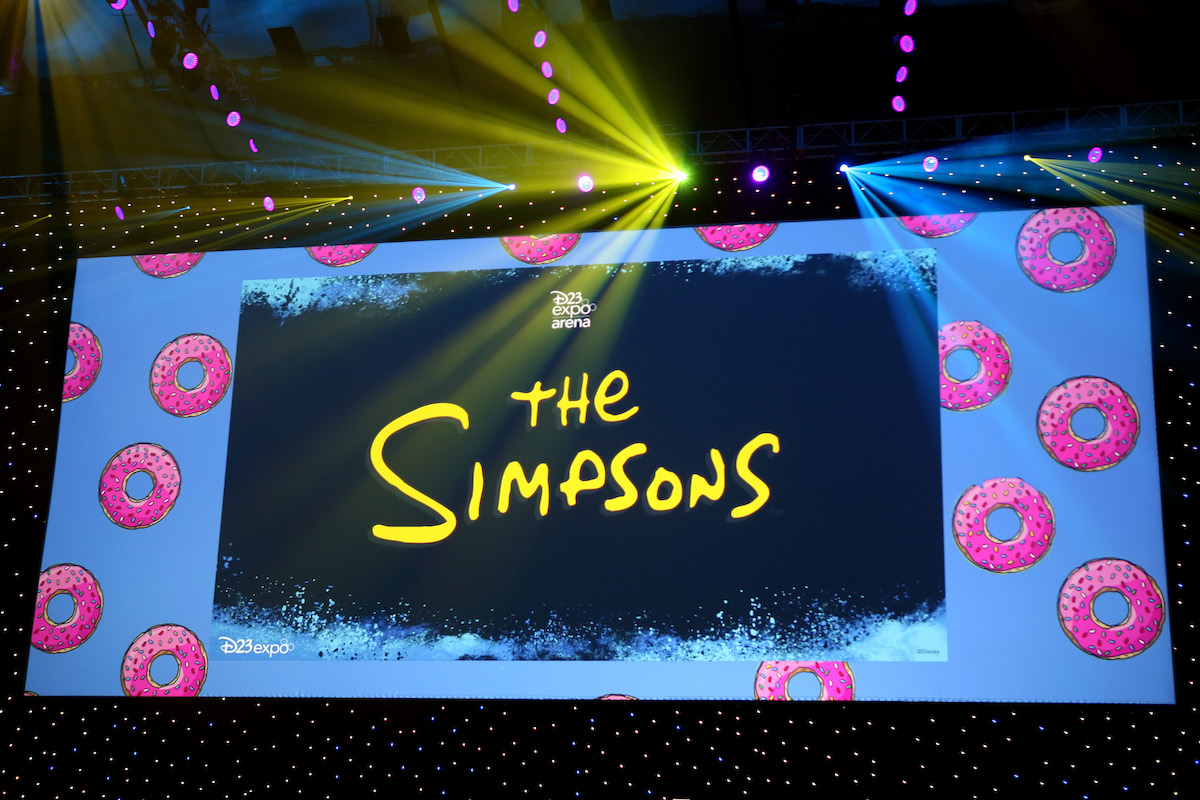‘The Simpsons’ Made These 10 Words Mainstream
In 1989, TV viewers first met Homer Simpson, his wife Marge, and their three children, Bart, Lisa, and Maggie. Springfield, USA, was home to The Simpsons. Its colorful cast of characters also included Ned Flanders, bartender Moe Szyslak, and the infamous Mr. Burns. Who would’ve guessed that, 30 years later, not only are these characters still a fixture on primetime TV, but also the words they utter have become an undeniable part of pop culture?
Whether you’re a casual viewer, a devoted fan, or have never even seen an episode of the Emmy Award-winning series, you’ll likely recognize many of the top 10 words The Simpsons made mainstream.
10. Chocotastic

The meaning of “chocotastic” is exactly as it sounds. Urban Dictionary defines the word as “something that is so indescribably awesome; it can actually relate to the awesomeness of chocolate.” In the series, “chocotastic” was described as one of the “neglected food groups,” along with “the whipped group” and “the congealed group.” If you’ve neglected “chocotastic” as a part of your regular diet, be sure to pick up a box of Frosted Chocotastic Pop-Tarts.
9. Craptacular
How do you describe Christmas lights that are haphazardly displayed and won’t work on Christmas Eve? “Craptacular,” of course! No explanation really needed here. You can probably figure out the origins of this compound adjective.
8. Excellent
The word “excellent” is by no means unique to The Simpsons. But resident villain Mr. Burns’ delivery redefines this common adjective. The Cambridge Dictionary defines “excellent” as “extremely good.” But with bent fingers and a subtle growl, Burns transforms the word into one of nefariousness and foreboding.
7. Meh
Who knew this simple adjective had origins in The Simpsons? The word, which means indifference or lack of interest, entered the mainstream after a 1994 episode. But although the show may have renewed the word’s popularity, The Smithsonian points out that the word can be traced to a 1928 entry in the Hebrew-Yiddish dictionary.
6. Haha
Again a word that’s not unique to the series, but it’s all in the way the word is delivered. Nelson Muntz first appeared as Bart Simpson’s archenemy in the fifth episode of Season 1. His signature “haha” has become synonymous with something bad happening to another character. Outside Springfield, “haha” still carries its original jubilant meaning, but you’ll find plenty of people who use its more sinister intent as well.
5. Avoision
“I don’t say ‘evasion.’ I say ‘avoision.'” “Avoision” has roots dating back to the ’70s. In essence, it means to rearrange your finances to avoid tax liability in a way that might or might not be legal. The word entered The Simpsons universe when news anchor Kent Brockman used it in “Bart the Fink.”
4. Unpossible
“Me fail English? That’s unpossible.” Ralph Wiggins spoke those words after learning he didn’t pass his class. “Unpossible” may not appear in an actual dictionary, but according to Urban Dictionary, “impossible” is “even more impossible than impossible.”
3. Embiggen
“Embiggen” is one of the more recent terms in The Simpsons to join the dictionary. The show first used the word in the episode “Lisa the Iconoclast.” It appears in the phrase “a noble man embiggens the smallest man.” The term has since appeared in print and movies. Its official definition is “to make bigger or more expansive.”
2. Cromulent
“Cromulent” first appeared in the same episode as “embiggen.” After a clip using the word, Edna Krabappel remarked she’d never heard of “embiggen” until she moved to Springfield. The remark elicited the reply, “I don’t know why. It’s a perfectly cromulent word.” Though “cromulent” didn’t exist in the dictionary when the episode aired, Merriam-Webster later called it “a perfectly cromulent candidate for future entry.”
1. D’oh
“D’oh” is arguably the one word most associated with The Simpsons. It first appeared on TV in a 1988 episode of the variety series The Tracey Ullman Show. “D’oh” appeared for the first time during The Simpsons in the debut episode, “Simpsons Roasting on an Open Fire,” which aired December 17, 1989. Homer Simpson frequently utters the exclamation to express frustration after an injury or mistake. The Oxford Dictionary even has an entry for “d’oh.”


